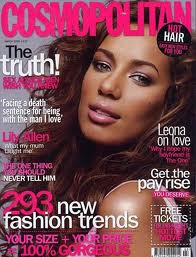While she doesn’t need or want my sympathy, I feel sorry for popular evangelical writer Lauren Winner. Only several years back we were reading her ambitious project to “change how Christians have sex.” Now we are reading about her divorce.
Winner’s latest book, Still: Notes on a Mid-Faith Crisis, are reflections on God’s presence in the pain and disillusionment when “til’ death do us part” comes undone in six years. “Still” in this context describes the act of giving pause to reconsider where God is and to be attentive to God’s presence, or seeming lack thereof; it is also a way of proclaiming that somehow in life’s messiness, God is still there.
And I must admit that I like this “stiller” version of Winner better. That is because, while it may not be Winner’s intention in her latest book to uncover and chip away at a pervasive myth in evangelical circles, she nonetheless does this very thing: her crisis of faith arises within and to a certain degree from an evangelical fairy tale about what it means to become a Christian and what it means to be married. What I am talking about here is the way that we evangelicals have historically equated both marriage and a born again conversion with “The Promised Land.” If you’re not married, then, in essence, you haven’t “arrived;” and, if you’re not a “born-again” Christian, then you haven’t truly “arrived,” either. There is little appreciation for the nature of conversion as an ongoing process made up of many steps forward and backward along the way; or, for marriage as only one option among a couple, or even a few, equally viable, equally “holy” alternatives for living out one’s God-given vocation.
I don’t have to dig too deep into my own experience to recognize the hang-ups that this glorification of marriage and a one-time conversion experience can foster. Having been married twelve years now, I am struck (sometimes painfully, sometimes serendipitously) by how marriage, much like conversion, involves an ongoing process of falling in and out of love, losing and then finding oneself, and being, in essence, “converted” and transformed over and over again. The notion that marriage itself, much like being born again, is somehow the telos– the end of our restless striving and longing- is not only flawed but destructive.
And, yet it has taken a long while to welcome this discovery as the falling away of unhealthy illusions about my relationship with God and with my spouse. I certainly had no clue what I was getting into when, at the tender age of 5 and at the cue of missionary parents- they had been sent to Kuala Lumpur, Malaysia by their Evangelical Free church- I accepted Jesus into my heart. I had only a little more clue about what I was getting into when nineteen years later I strode down the aisle of a little Episcopal church in New Haven, Connecticut to say the words, “I do.” Because in both cases the message relayed to me within evangelical circles was that “this” was the euphoric “it;” that I had not only made the most important decision of my life, but would now be a full, fulfilled and self-realized human being. Pain, confusion, discouragement, and loss of self? These things were not even acknowledged as possibilities in the “promised lands” of marriage and being “born again.”
So I guess I am grateful to Winner for sharing her story. She has poked in a more personal way at the underside of the evangelical fairy tale that we so rarely see, or see largely in statistics- how, for example, the divorce rate among Christians is as high as it is among the general population (approximately one in two marriages); or how the still largely Christian South where I live boasts some of the worst divorce rates in the country; or how a girl who has met God, “seen the light” and “arrived” can then find that same God a stranger shrouded in darkness.
Somehow this gentler, more chastened Winner seems a bit more likeable than the one leading the crusade to change how my husband and I have sex.

